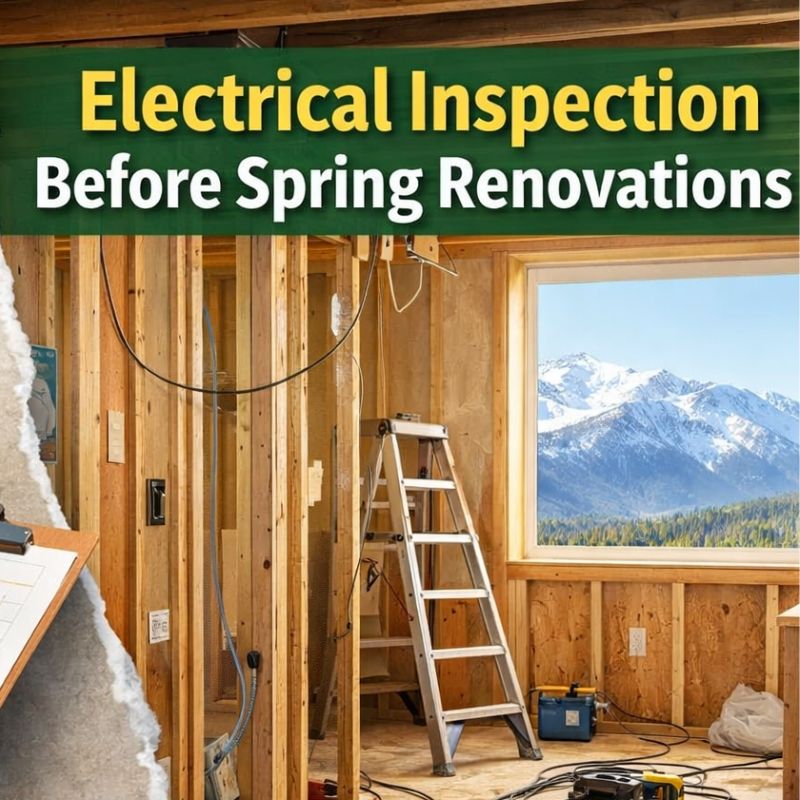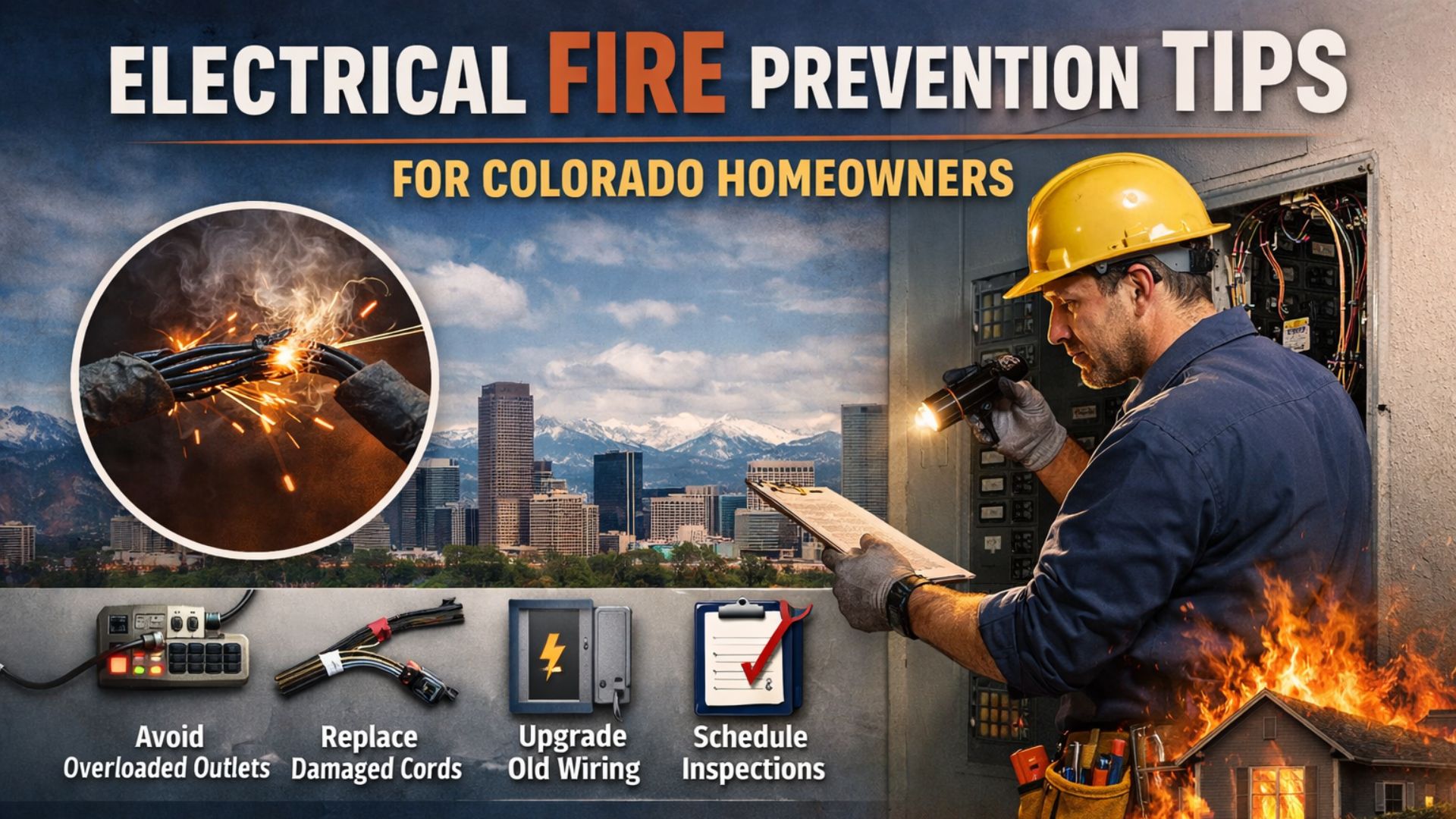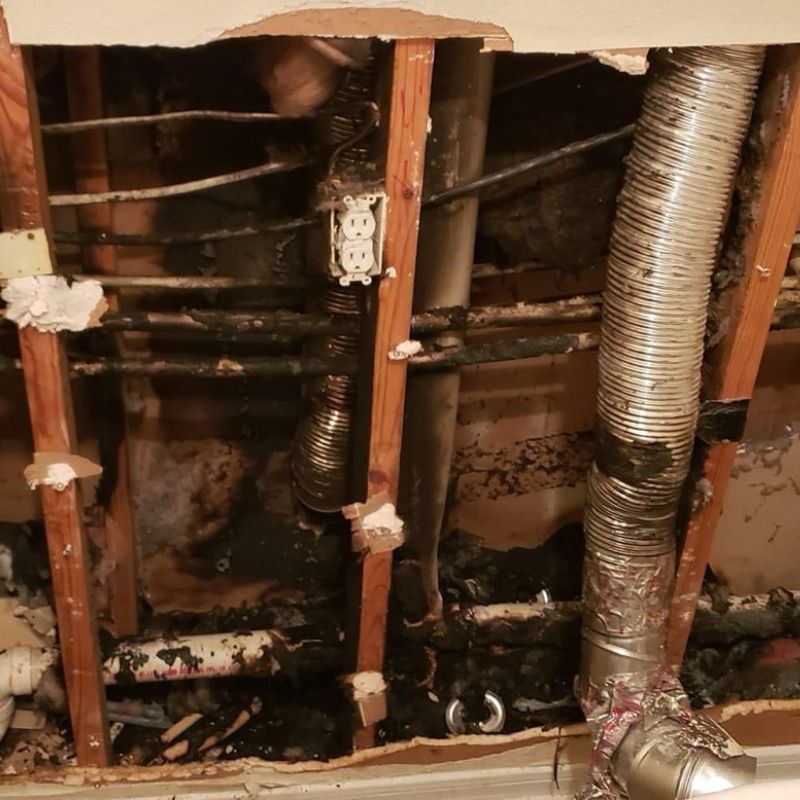Contents
- How to Choose, Install, and Wire the Best Hardwired Smoke Detector for Your Home
- Why Choose a Hardwired Smoke Detector?
- What Is the Best Smoke Detector for Home Use?
- Where Should Smoke Detectors Be Installed?
- Tools & Materials for Smoke Detector Installation
- Step-by-Step: How to Install a Hardwired Smoke Detector
- How to Replace a Hardwired Smoke Detector
- How to Change the Battery in a Hardwired Smoke Detector
- Nest Smoke Alarm Wiring Tips
- When to Replace or Upgrade Smoke Detectors
- Do You Need a Pro for Smoke Detector Installation?
- Call The Electricians Today
- FAQs About Hardwired Smoke Detectors
Trusted Colorado Electricians
How to Choose, Install, and Wire the Best Hardwired Smoke Detector for Your Home
Having the right smoke detector isn’t just smart, it can be life-saving.
Whether you’re upgrading your system or installing new detectors from scratch, hardwired smoke detectors offer the most reliable, code-compliant protection.
This guide combines the best of both worlds: how to choose the best smoke detector for your home and how to install and wire it like a pro.
Why Choose a Hardwired Smoke Detector?
While battery-powered units are convenient, hardwired smoke detectors provide a safer, longer-term solution:
- Constant power supply from your home’s electrical system
- Battery backup in case of power outages
- Interconnectivity, meaning when one alarm sounds, all do
- Required by code in most new homes and remodels
Hardwired alarms reduce false alarms, improve response times, and meet modern fire safety standards. Many models include smart features and backup batteries for uninterrupted operation.
What Is the Best Smoke Detector for Home Use?
Many smoke detectors are available today, but not all offer the same quality. Here’s a look at the top-rated electric smoke detector options:
1. Google Nest Protect
- Smart detection for smoke and carbon monoxide
- Mobile alerts and app integration
- Voice alerts and self-testing
2. First Alert Onelink Safe & Sound
- Alexa-enabled, smart features
- Hardwired with battery backup
- High-quality speakers for alerts and audio
3. Kidde Smoke & CO Detector with Voice Warning
- Budget-friendly
- Interconnectable
- Voice alerts for smoke and carbon monoxide
4. X-Sense Smart Smoke Alarm
- 10-year sealed battery
- App control and wireless interconnectivity
5. First Alert BRK 9120B
- Classic, affordable hardwired detector
- Interconnects with other BRK models
Tip: Look for dual-sensor alarms that detect both flaming and smoldering fires for maximum protection.
Where Should Smoke Detectors Be Installed?
The National Fire Protection Association (NFPA) recommends the following placement:
- One in every bedroom
- One outside each sleeping area
- One on every level of your home (including basements)
- At least 10 feet from cooking appliances to reduce nuisance alarms
- On ceilings, at least 4 inches from the wall
- On walls, 4–12 inches from the ceiling
Avoid installing detectors near windows, vents, or fans to prevent false alarms.
Tools & Materials for Smoke Detector Installation
Before starting your smoke detector installation, gather these items:
- Voltage tester or multimeter
- Wire stripper and cutter
- Wire nuts
- Screwdriver or drill
- Mounting bracket
- Ladder
- Electrical box (if needed)
- 14/3 NM cable with ground
- Hardwired smoke detector unit
Step-by-Step: How to Install a Hardwired Smoke Detector
Step 1: Turn Off the Power
Go to your circuit breaker and shut off the power to the circuit you’ll be working on. Double-check using a voltage tester.
Step 2: Mount the Electrical Box
If one is not already in place, install a ceiling-rated electrical box between joists or to a stud.
Step 3: Run the Wiring
Use 14/3 NM cable with ground to run power from the panel (or another smoke alarm) to the new box. For interconnectivity, use the red wire.
Step 4: Connect the Wires
Match the colors:
- Black to black (hot)
- White to white (neutral)
- Red to red (interconnect)
- Ground wire to the box and unit
Secure all connections with wire nuts and tuck wires safely into the box. Proper smoke alarm electrical wiring ensures safe function.
Step 5: Mount and Connect the Smoke Detector
Install the mounting bracket, attach the wiring harness to the smoke detector, and twist the unit into place.
Step 6: Restore Power and Test
Turn the circuit breaker back on. Press the test button. All interconnected alarms should sound if wired correctly.
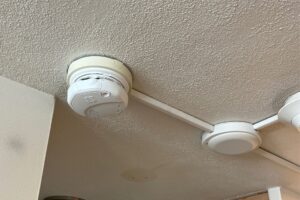
How to Replace a Hardwired Smoke Detector
If you’re planning to replace a hardwired smoke detector, the process is simpler than new installation:
- Turn off the power
- Remove the old detector
- Disconnect the wiring harness
- Connect the new unit using the same wires or harness
- Mount and test
Replace all units every 8–10 years, even if they still appear to function. This helps prevent false alarms and ensures reliability.
How to Change the Battery in a Hardwired Smoke Detector
Even hardwired detectors rely on battery operations for backup. Here’s how to change the battery:
- Twist the unit off its mounting bracket
- Open the battery compartment
- Replace the old 9V or lithium battery
- Close the compartment and remount the unit
- Press the test button to confirm function
A chirp every 30–60 seconds typically signals a low battery.
Nest Smoke Alarm Wiring Tips
Installing a smart detector? Here’s what to know about Nest smoke alarm wiring:
- Comes with a 120V wiring harness
- Wire black to black, white to white, and red to red (if interconnecting)
- Use the app to configure and test
Nest units offer mobile alerts, smart diagnostics, and remote monitoring for convenience and safety.
When to Replace or Upgrade Smoke Detectors
Replace hardwired alarms when:
- They are 10+ years old
- Frequent false alarms occur
- They fail test button checks
- The casing shows wear or yellowing
Regular monthly testing and dusting improve longevity.
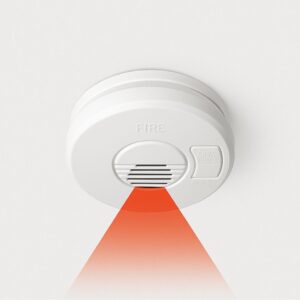
Do You Need a Pro for Smoke Detector Installation?
Hardwired smoke detector installation involves electrical work. A licensed electrician ensures:
- Proper smoke alarm electrical wiring
- Code compliance and permitting
- Correct interconnect functionality
- Reliable performance
At The Electricians, we install all types of hardwired smoke and carbon monoxide detectors across Colorado.
Call The Electricians Today
Need help installing a fire alarm or updating your system? Call 720-633-5937 or contact us online to schedule professional smoke detector installation.
We handle everything from wiring of smoke detector units to configuring smart, hardwired alarms.
FAQs About Hardwired Smoke Detectors
What type of smoke detector is best for homes?
Dual-sensor electric smoke detectors offer superior detection for both flaming and smoldering fires.
Are hardwired smoke detectors better than battery-powered?
Yes, they’re more reliable, include battery backup, and support interconnected alerts.
Can I replace a hardwired smoke detector myself?
Yes, if you’re confident. Otherwise, hire a licensed electrician to handle the wiring.
How often should I test smoke alarms?
Test every month and replace all hardwired alarms every 8–10 years.
Can I use different brands in an interconnected system?
Stick to one brand to ensure compatibility across hardwired alarms.
Stay safe, stay smart, and let The Electricians keep your home protected.
Related Posts
If you enjoyed reading this, then please explore our other articles below:
Electrical Panels in Colorado Homes
Many homes across Colorado, especially in Denver, Aurora, Lakewood, and Colorado Springs, were built with electrical panels that were never designed for modern power demands. Cold winters, EV charging, home offices, and newer appliances place added stress on older panels and breakers.
If you are noticing frequent breaker trips, buzzing sounds, or planning an upgrade like an EV charger or heat pump, a licensed Colorado electrician can evaluate whether your panel needs repairs or a full power upgrade.

